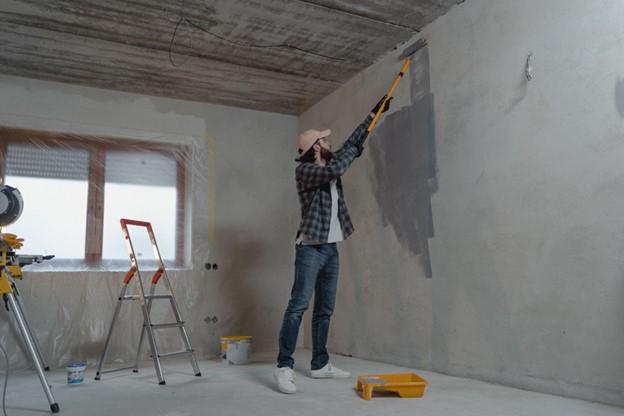Juggling Relocation and Enterprise: Your Blueprint to Success
Image via Freepik
By Suzie Wilson
In today’s fast-paced world, running a business from home is more achievable than ever. Adding the challenge of relocating to a new home can feel overwhelming, but it also offers an opportunity for growth and a fresh start. You can successfully manage both launching a home business and moving by combining careful planning and adaptability. This article provides practical strategies and insights to help you navigate these two major events and turn potential challenges into opportunities for success.
Unlocking Market Potential in Your New Locale
Understanding the local market is critical to kick off your home-based business in a new location. Conduct a thorough market analysis to gauge potential demand in your new area. This involves examining geopolitical and economic dynamics, such as global trade tensions and technology developments, which can influence local markets. Additionally, keep an eye on trends like the rise of e-commerce and remote work preferences, which are reshaping consumer behaviors.
Elevating Your Business Acumen Online
Sharpening your business skills is crucial during a significant transition like moving. Enrolling in an online accounting degree program can significantly enhance your understanding of financial management. The flexibility of online programs allows you to balance studies with moving demands without sacrificing education quality. This educational investment increases your competence and opens up new professional opportunities in the evolving business landscape.
Merging Moves: Synchronizing Relocation and Business Launch
Creating a detailed timeline that merges your home relocation with your business launch can streamline the process. Break each phase into actionable steps to avoid missing critical milestones. Utilizing a product launch roadmap can help define roles and responsibilities, leading to smoother execution. By implementing project integration management, you can synchronize tasks like marketing strategies and logistical arrangements, minimizing stress and maximizing the likelihood of a successful transition.
Designing Your Dream Workspace
Setting up a home office in your new residence requires thoughtful planning. Choose an area that balances work requirements with household dynamics. A workspace detached from bustling areas can enhance productivity by minimizing distractions. Incorporate natural light and ample ventilation to create a comfortable and conducive environment for work. This thoughtful setup will boost your focus and seamlessly blend into your home’s flow.
Strategic Budgeting for a Dual Venture
When planning to start a home-based business while relocating, scrutinizing both current expenses and future financial obligations is crucial. Evaluate all relocation costs, such as transportation and professional fees, to create a comprehensive budget. Include estimates for the business launch, covering equipment, marketing, and potential legal consultations. A flexible budget structure allows you to adjust for unexpected costs, ensuring neither the business launch nor relocation is jeopardized.
Building Connections Through Local Events
Engaging in local community events offers a powerful way to network and establish connections for your business. Participate in events like farmers’ markets, festivals, and local mixers to meet potential clients and collaborators. These interactions provide opportunities to introduce your business to the community and gain insights from those already established in your field. Being visible in these settings helps establish trust and demonstrates your commitment to being an active community member.
Navigating the Legal Landscape of Home-Based Businesses
Understanding local zoning restrictions is crucial for legal compliance when launching a home-based business. These regulations dictate property usage, and your business type could be affected if zoning laws do not permit commercial activities in residential areas. Research your new locality’s zoning regulations thoroughly, as non-compliance can lead to legal challenges. Consulting with a legal expert can help ensure you secure all necessary permits and adhere to local ordinances.
Embracing the dual challenge of launching a home-based business while moving is akin to embarking on a multifaceted adventure that tests your resolve, creativity, and resilience. Each step in market analysis, strategic planning, and community engagement brings you closer to transforming obstacles into opportunities and your new home into a thriving innovation hub. As you navigate this exciting intersection of personal and professional reinvention, remember that every milestone is a testament to your entrepreneurial spirit, no matter how small.
Discover your dream home with the trusted experts at US Delta Realty, where dedicated service and proven results transform your real estate journey!








